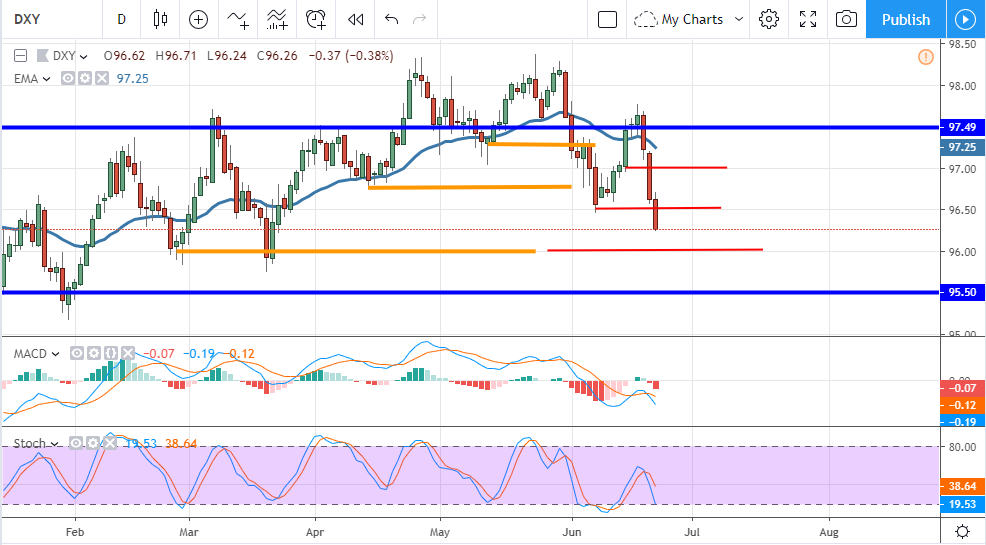What To Watch In The Week Ahead
Central Banks Turn Dovish, Data More Important Than Ever
We just had a whirlwind round of central bank meetings, press conferences, and surprise comments. The general consensus among the world’s money-supply chiefs is that easing is on the horizon. The impact of trade tariffs, the U.S./China trade war, and geopolitical instability in the EU, Middle East and South America have done their damage to economic activity. Economic activity is still strong but the pace of acceleration has slowed. If it slows much more the bankers will be forced to act aggressively which is why the data is more important than ever.
The Economic Calendar
This week’s calendar is not overly full but there are some important data points on it. The most important will come from the U.S. but data from the EU and Australasia will come in a close second. In the U.S. look out for New Homes Sales early in the week and then Pending Home Sales later on. The U.S. housing market hasn’t been strong and lower rates are expected to have spurred some activity. If not the odds of future interest rate cuts will grow, the odds of a July cut are already at 100% so it is possible the Fed will make an aggressive -0.50% cut to rates.
The U.S. Treasury Yield Curve is falling deeper into inversion. The ten-year yield fell below 2.0% last week and hit a multi-year low. The inversion signals the odds of a U.S. economic recession are growing although that risk is tied to trade. Trump’s revelation U.S. and Chinese negotiators are talking ahead of the G-20 meeting has revived hope a trade deal will be reached soon. If so, economic activity is likely to begin reaccelerating.
In Europe Stimulus Is On Tap
In the EU there is a raft of data points from individual member nations. Early in the week there is consumer and business sentiment data for Germany, France, and Spain while CPI for those same will come out later in the week. All-EU CPI is also expected at the end of the week and the most important in terms of the ECB. The ECB has just taken a very dovish tone indicating stimulus is likely to come very soon. The bank’s interest rates are already negative so it is unclear other than additional TLTRO action what they may be able to do.
In the Pacific region, New Zealand Central Bankers are meeting and expected to release their policy statement midweek. The bank is not expected to alter policy but it may strike a dovish tone to match the FOMC, ECB, BOJ, PBOC and BOE. If not the kiwi may see big gains versus the major world currencies. The dollar is already in a deep decline following the FOMC statement, it won’t take much for it to move a little lower.
